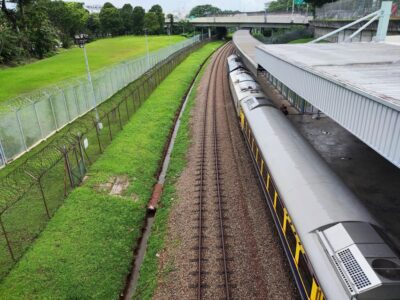Top proptech startups and businesses to watch in 2025, plus additional headlines

For PropertyGuru’s real estate news roundup, these are the top eleven proptech startup companies to watch in 2025. In other news, here are five key trends that are likely to shape Australia’s commercial property market over the coming year. Lastly, evolving AI tools are playing a growing role in companies identifying opportunities for efficiencies and optimizing building operations.
11 Proptech startups & businesses to watch in 2025
If you feel like the real estate industry is overdue for a tech makeover, you’re not alone. The world of property management, sales, and development is buzzing with innovation, thanks to forward-thinking proptech startups. These proptech companies bring convenience to building management, making everything from managing tenant access to handling financials more streamlined and efficient. What’s more, these startups are not just about flashy new gadgets; they’re offering real solutions to everyday problems in property management and development. ButterflyMX lists the top eleven proptech startup companies to watch, defines proptech, and answers your questions about property technology startups.
Getting beyond ‘survive to 2025’: What’s next for Australia’s commercial property
“Survive to 2025” is a phrase used within the commercial real estate sphere since the pandemic first threw the sector into chaos in 2020. But while market conditions have changed considerably over the past five years, many of the challenges that emerged in 2020 remain front of mind for businesses and investors exposed to the sector. As 2025 begins, realcommercial.com.au lists five key trends that are likely to shape Australia’s commercial property market over the coming year.
How AI is boosting efforts to cut buildings’ energy use
As companies look for ways to cut their energy use across their real estate, evolving AI tools are playing a growing role in identifying opportunities for efficiencies and optimizing operations. JLL reports that at least 90 percent of buildings in the world’s most developed cities are over a decade old, often falling short of today’s energy standards. Improving energy efficiency could make the second-largest impact on reducing carbon emissions over the next decade. With many buildings now equipped with sensors and smart technologies, a wealth of real-time data on systems and equipment offers significant potential for AI to analyze and optimize energy use. “Tackling energy efficiency is the most tangible path to real estate decarbonization, but many building owners lack a clear roadmap. The value of AI lies in its ability to learn the energy demand patterns of building assets and optimize energy distribution,” says Ramya Ravichandar, Vice-President of Product Management, Smart Buildings & IOT.
The Property Report editors wrote this article. For more information, email: [email protected].
Recommended
Thailand advances digital finance with blockchain real estate push
Issues over marrying blockchain incentives to a physical asset class is hampering Thailand’s digital finance push
Johor Bahru emerges as a key economic partner to Singapore
Once regarded as a poor relation across the causeway, Johor Bahru is cementing its status as an integrated economic partner to Singapore
Vietnam sets new rules to reward clean energy producers
Vietnam’s government has passed new regulations allowing homeowners and landlords to sell solar power back to the national grid for the first time
Bangkok developers shift focus to safer low-rise and suburban projects
Concerns over Bangkok’s seismic safety in the wake of the recent Myanmar earthquake have prompted a shift toward low-rise developments







